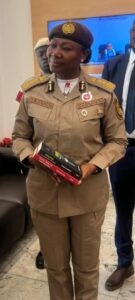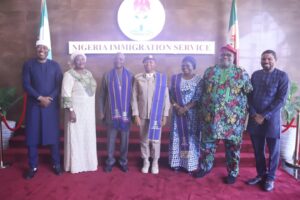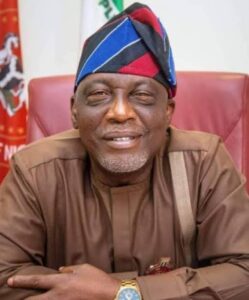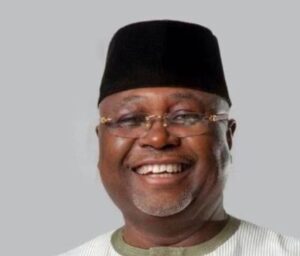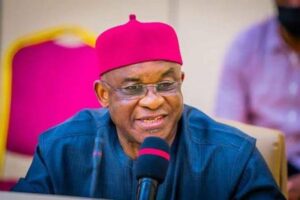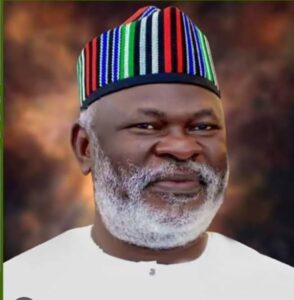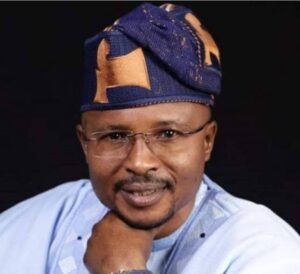COLUMNIST
A BRISK ENCOUNTER WITH KEMI NANDAP
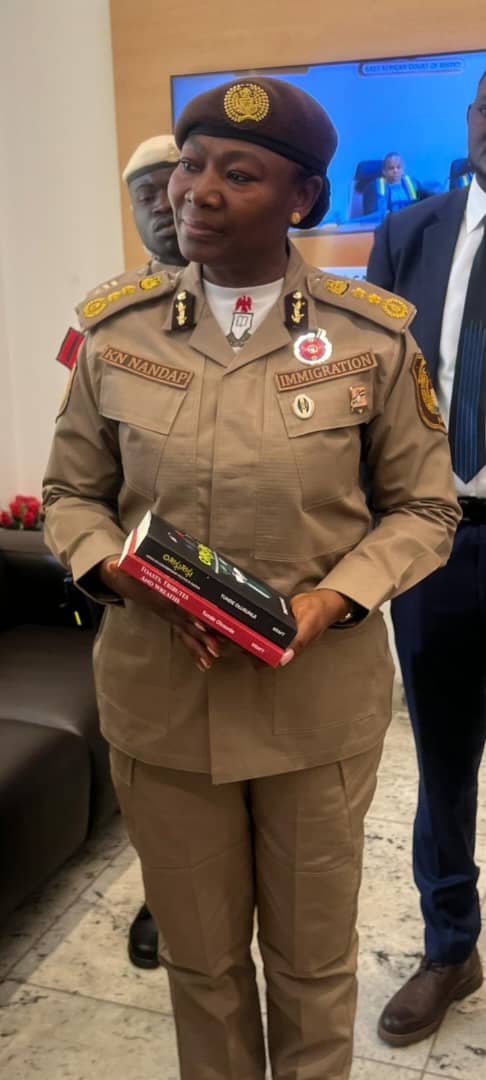
By Tunde Olusunle
I don’t know the way it is with others, but I’m so eternally enamoured by my *alma maters* across my life’s trajectory, I just can’t stop celebrating them. For me, the Immaculate Conception College, (ICC), Benin City, is the best secondary school in this milieu. Headed by the unsung academic and administrative luminary, Dr Joseph Odidi Itotoh in my generation, ICC was catalytic in laying the building blocks of my life as destined by God. I feel similar nostalgia for the University of Ilorin where I obtained two hard-earned degrees in English. To imagine the institution didn’t initially feature in my priorities. I was almost incurably obsessed about schooling in the erstwhile University of Ife, (Unife), now Obafemi Awolowo University, (OAU). Africa’s first Nobel Laureate for Literature, Wole Soyinka was on the faculty of Unife. I really drooled and salivated about the prospects of physically encountering and being taught by this icon, whose imprimatur was all over our literature curriculum, over time. OAU was star-studded, boasting luminaries like Femi Osofisan, Biodun Jeyifo, Kole Omotoso, Chidi Amuta and Godini Gabriel Darah, among others. If I desired to study English, Unife was the place to be, so I thought.
True, the burgeoning University of Ilorin which operated in its early years substantially from the makeshift mini-campus in the city was bereft of the jaw-dropping aesthetics of Unife. Unilorin made up for this, however, with the sheer density and diversity of its faculty.
Between the former “Department of Modern European Languages” which warehoused the English and French courses, and the adjoining Department of Performing Arts, Unilorin could not be cowed by faculties elsewhere. At the head was the English man David Cook, credited with mentoring the Ngugi wa Thiong’o generation of East African writers. There was also the multifaceted, self- effacing Indian scholar, Prayag Tripathi. A much younger Olu Obafemi, creative versatile, charismatic, steep in radical intellectualism; and Sam Adewoye, a novelist, were equally in the team.
There were also the trendy Nigerian-American intellectual, Tayo Olafioye who was given to infectious and flowery elocution; the bubbly American teacher, Russell Chambers; the engaging Ugandan lecturer Stephen Hesbon Lubega, and the untiring language specialist, Emmanuel Efurosibina Adebija, among others.
Africa’s first published female playwright and first female professor of theatre arts, Zulu Sofola; pioneer faculty member in performing arts in Unilorin, Akanji Nasiru and the indefatigable Nigerian-American dance expert, Bunmi Babarinde-Hall, featured in the newly established performing arts department in our time. Not forgetting the eccentric Sierra Leonean actor and playwright, Yulisa Amadu-Maddy, and subsequently, Ayo Akinwale. Such was the kaleidoscope of personalities who privileged our thoughts and vistas. An aggregation of these resources and experiences bred the moniker, *Better By Far* with which we’ve beaded the university over aeons.
Over the years, I’ve found myself a compulsive and delighted documenter and diarist of fellow alumni from Unilorin, in their courses and attainments in life. The institution has blessed Nigeria and the world at large with some of the finest of manpower, some of the most skilled human resources in virtually every department and sector. Early this year, Kemi Nana Nandap, who was hitherto an unobtrusive Deputy Comptroller-General, (DCG), in the Nigerian Immigrations Service, (NIS), was appointed substantive Comptroller-General of the Service by President Bola Tinubu. She graduated with an honours degree in biochemistry from Unilorin in 1987, same year with Tinuke Watti, another distinguished Unilorin alumna, who was appointed federal Permanent Secretary late 2023, by the President.
Nandap became the fourth woman to be appointed to the position of Comptroller-General, (CGI), of the NIS. This is tangible evidence that she has consistently and sustainably proved her mettle all through her career, in a male-dominated paramilitary profession. Notable women who previously led the NIS as chief executives include: Uzoamaka Nwizu, (2000 – 2004, of blessed memory); Rose Chinyere Uzoma, (2010 – 2013) and Caroline Wuraola Adepoju, who handed over to Nandap early this year. Her appointment took effect from March 1, 2024.
Between Olusegun Adekunle, OON, Emeritus Federal Permanent Secretary and Chairman of the Abuja chapter of the Unilorin alumni association; Wale Fasakin, National President, and Bolanle Olatunde, National Public Relations Officer, I was literally “abducted” and thrust into an impromptu visit to CGI Nandap, Friday December 6, 2024! Fridays are usually tricky days. One tries to wrap up his schedule for the week with very strict deadlines. The trio, however, are people one holds in high esteem. Fasakin indeed came from out-of-state, to Abuja specifically for the purpose of the courtesy call. His selflessness could only be assuaged if the programme proceeded successfully.
My only option in the circumstances was to juggle my schedule so as to be on the delegation. Other members of the delegation were: Moji Oshikoya, (of the Federal Capital Territory Administration, (FCTA)); Nuhu Adam, (an aviation industry stakeholder), and John Ondoma Freeman, (who is on the executive of the alumni Abuja chapter).
The air was festive within the perimeters of the headquarters of the NIS on the airport road as we drove in. The grass lawn adjacent the administrative building of the organisation was being readied for some event, most probably a night of carols, maybe an end-of-year get-together. Our delegation was very courteously received and ushered into a visitor’s room by aides of the CGI. I remarked about the tidiness and sense of order which I noticed within minutes of our arrival.
We engaged ourselves with reminiscences of our times in Unilorin, enjoyed our laughters and glanced at the television screen from time to time. Olubunmi Tunji-Ojo the Interior Minister, we were informed, was visiting. He was being received by the leadership of the NIS in the boardroom of the outfit.
Nandap’s entry into the visitor’s room where we were seated was without fanfare. I’ve visited quite a few regimented services through the decades and I’ve never been impressed by the contrived stampede, the conjured drama and needless *gra gra* associated with the movements of their “big men.
” Let’s be very clear: I was a very close aide of President Olusegun Obasanjo, GCFR, all through his eight years in office. I operated from the most proximal physical space to him and saw him everyday. To this extent, I’m very accustomed to “VIP movements.” To be sure, I logged nearly 30 countries across the world on *Baba’s* entourage. (Baba is the globally adopted alias for Obasanjo).
This was until I began to dodge the drudgery and tedium of moving around and about with him. Before Obasanjo, I had worked back- to- back as publicist with one civilian Governor and two Military Administrators in my state: Prince Abubakar Audu; Colonel Paul Omeruo and Colonel Bzigu Afakirya.
CGI Nandap was already standing before us, before we even noticed when she eventually joined us. We rose in unison to our feet to return her civility once we saw her. Despite the ring of uniform-wearing and plain-clothed aides around her, her naturalness, her unassumingness, her humility shone bright. She apologised for keeping us waiting.
She explained she was indeed going to request fo a rescheduling of our meeting with her, once impromptu engagements began to clog her itinerary for the day, so that our meeting with her will be worth the while. Having seen off her supervising Minister, Nandap still had a few other programmes to attend on a day like Friday, typically a “half day.”
Dr. Wale Fasakin spoke on behalf of the team. He presented as souvenir, a roll-up banner bearing the image of the CGI congratulating her on her merited appointment. Nandap was draped with a customised sash bearing the *Better By Far* inscription, emblazoned across the colour code of the University of Ilorin. Bolanle Olatunde stepped forward to decorate her with the Unilorin lapel pin. I did invite her to the public presentation of two of my newest books which took place early October.
The event was chaired by three-time National Security Adviser, General Aliyu Mohammed Gusau, GCON, with the media luminary, Chief Onyema Ugochukwu, FNGE, CON, as “Professional Elder Statesman.” CGI Nandap’s colleagues in the Nigerian Police Force, (NPF); the Federal Road Safety Corps, (FRSC), and so on, attended. I had with me, autographed copies for presentation to her.
Kemi Nana Nandap who hails from Ogun State was born June 3, 1966, in Zaria. Like me, who was born in Kaduna, she epitomises the merits of our archetypal sociocultural interconnectedness, with her added spousal affiliations to Plateau State, to wit.
This is not discounting her horizontal and vertical movements across the country on several postings and assignments on national service.
These have helped to consummate her pan-Nigerian worldview. Last October, there were murmurings within Immigrations circles that Nandap had attained 35 years in service and was due for retirement, consistent with service conditions. Nandap was a member of *Course 22* of the NIS Training School, Kano, which was commissioned on October 9, 1989.
While it is true that she has completed 35 years in the public service, her Letter of Appointment specifies that she will hold office for a period of 18 months, all the way to October 2025. Her continued stay in office is therefore consistent with the terms of her appointment by the President, Commander-in-Chief.
A heavily decorated professional, CGI Kemi Nana Nandap continues, to lead with every passion a service which aims to approximate the attainments of pace-setting parallel agencies in other parts of the world, as the Nigerian Immigrations Service continues to reinvent itself.
*Tunde Olusunle, PhD, Fellow of the Association of Nigerian Authors, (FANA), is an Adjunct Professor of Creative Writing at the University of Abuja*

COLUMNIST
POLITICAL UNDERCURRENTS IN “BENUE SOUTH” AHEAD OF 2027
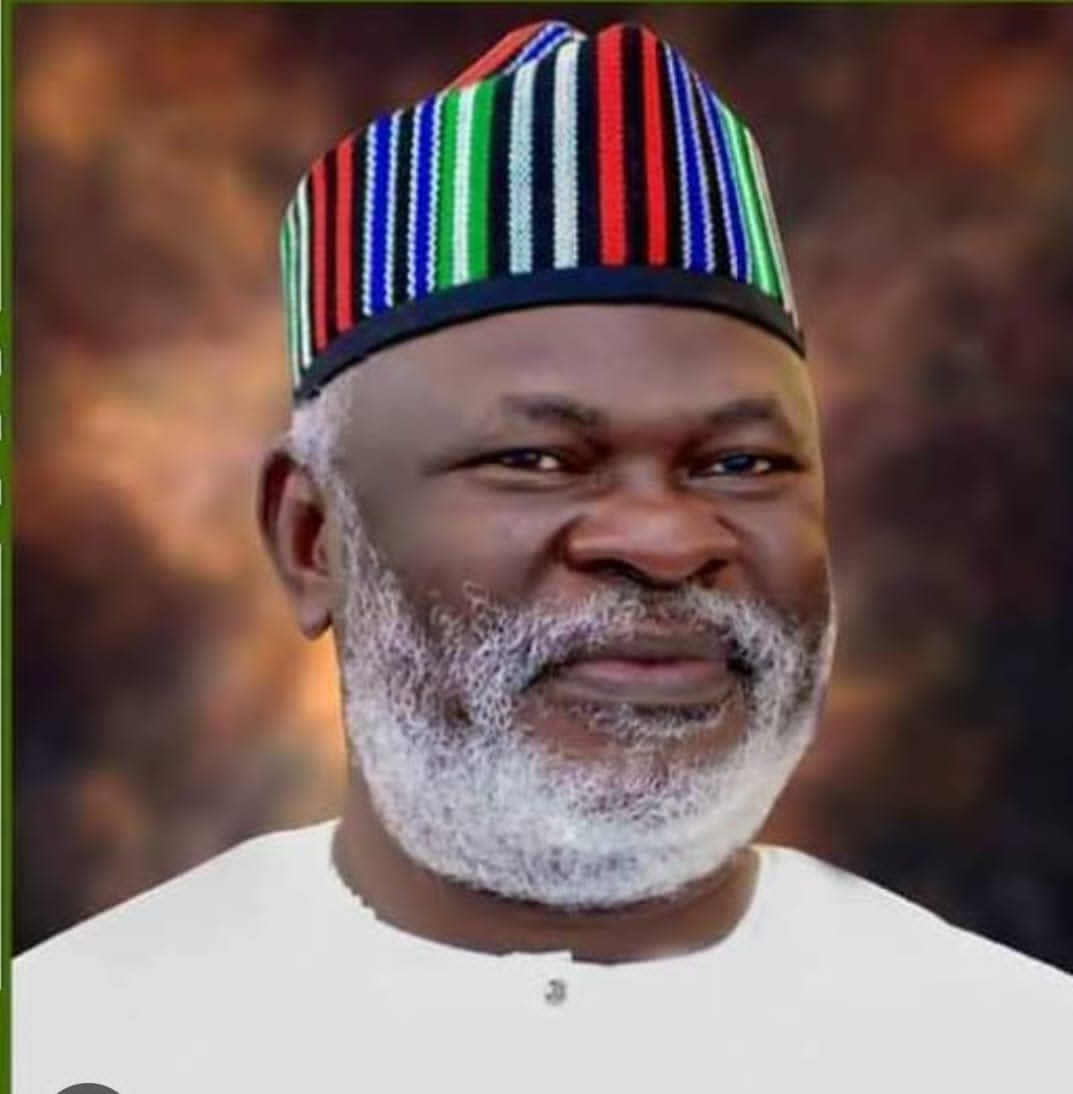
*By Tunde Olusunle*
It may be well over two years to the next cycle of general elections in Nigeria. For the people of Apa/Agatu federal constituency in *Benue South,* however, the measure of their participation and integration into the governance scheme will be defined in the run-up to the general polls that year. Nine local government areas make up the predominantly *Idoma* country of Benue State also labelled *Zone C* in the senatorial tripod of the geo-polity. The zone is also home to the *Igede* ethnic stock and the *Etulo.* Local government areas in “Benue Zone C” include: Apa, Agatu, Oju, Obi, Ado, Ogbadibo, Okpokwu, Otukpo and Ohimini. The other zones, Benue North East and Benue North West, are wholly dominated by the *Tiv* nationality, striding across 14 local government areas. They are christened *Zone A* and *Zone B* in the local political scheme of the state. Federal constituencies in Benue South are: Apa/Agatu, Oju/Obi; Ado/Ogbadibo/Opokwu and Otukpo/Ohimini.
The subjugation of groups and ethnicities considered demographically smaller, by the larger groups which has dominated Nigeria’s politics over time, has not been any different for the Idoma of Benue State. Until the circumstantial emergence of a Yahaya Bello from the *Ebira* ethnicity in Kogi State in 2015, the *Igala* had the relay baton of governorship of Kogi State, in rounds and succession. The Ebiras and the *Okun-Yoruba* zones in the state could only aspire to be serial deputies or Secretaries to the State Government. This political template was virtually cast in stone. The *Ilorin* people of Kwara State have similarly wholly warehoused the gubernatorial office, sparingly conceding the position to other sociocultural groups in the state. The only exception was the concession of the seat to a candidate from Kwara South, in the person of Abdulfatah Ahmed, by his predecessor, Bukola Saraki in 2011. Even at that, there were murmurs and dissent from those who believed Ahmed came from a community too close to the Ilorin emirate to be of genuine *Igbomina* stock, which prides itself as the pure Yoruba species in Kwara State.
Twenty-six years into the Fourth Republic, the maximum proximity of the Idoma to Government House, Makurdi, has been by the customary allocation of the Deputy Governor’s slot to its people. Ogirri Ajene from Oju/Obi, the charismatic blue-blood of blessed memory, was deputy to George Akume, incumbent Secretary to the Government of the Federation, (SGF), from 1999 to 2007. Akume it was reported, genuinely desired to be succeeded by Ajene who exhibited competence and loyalty and could build on their legacies. The Tiv nation we understand, shot down the proposal. Gabriel Suswam succeeded Akume and had the urbane *multipreneur,* Stephen Lawani from Ogbadibo as deputy. Samuel Ortom, a Minister in the Goodluck Jonathan presidency who took over from Suswam opted for Benson Abounu, an engineer from Otukpo as running mate, while Hyacinth Alia, the Catholic priest who succeeded Ortom, also chose as deputy, Samuel Ode, who was also a Minister in the Jonathan government, from Otukpo. Arising from this precedence, Apa/Agatu has not for once, been considered for a place in Government House, Makurdi.
In similar fashion, the position of Senator representing Benue South, has repeatedly precluded Apa/Agatu federal constituency. David Alechenu Bonaventure Mark a former army General from Otukpo, took the first shot at the office in 1999. He was to remain in the position for five consecutive times, a distinctive record by Nigerian standards. Mark would subsequently become President of the Senate and the third most senior political office holder in the nation’s governance scheme for a string of two terms between 2007 and 2015. He was replaced by Patrick Abba Moro, who hails from Okpokwu and was a former teacher, in 2019. Abba Moro who previously served as Minister of Interior in the Jonathan government from 2011 to 2015, won a second term at the 2023 general elections and remains substantive Senator for “Benue Zone C.” He is indeed incumbent Minority Leader of the Senate, and thus a principal officer in the leadership scheme of the “red chambers.”
While Moro is barely two years into his second term, there are suggestions that he is interested in a third term which should run from 2027 to 2031! This is the core issue which has dominated contemporary political discourse in Benue South, especially from the Apa/Agatu bloc. For Apa/Agatu, it is bad enough that they are repeatedly bypassed in the nomination of deputy governors in the scheme of state politics. It is worse that they are equally subjugated by their own kinsmen within the context of politics in *Idoma and Igede land.* This is particularly worrying when both local government areas constituting the Apa/Agatu federal constituency, Apa and Agatu, are not in anyway deficient in human resources to represent Benue South. Names like John Elaigwu Odogbo, the incumbent *Och’Idoma* and respected clergy; Isa Innocent Ekoja, renowned Professor and Librarian; Sonny Togo Echono, FNIA, OON, Executive Secretary, Tertiary Education Trust Fund, (TETFUND), and John Mgbede, Emeritus State Chairman of the Peoples Democratic Party, (PDP), Benue State, readily come to mind.
Major General R.I. Adoba, (rtd), a former Chief Training and Operations in the Nigerian Army; Professor Emmanuel Adanu, former Director of the Kaduna-based National Water Resources Institute, (NWRI) and the US-based specialist in internal medicine, Dr Raymond Audu, are eminent Apa/Agatu constituents. There are also Ada Egahi, long-serving technocrat who retired from the National Primary Healthcare Development Agency, (NPHDA), and Super Eagles forward, Moses Simon, (why not, hasn’t the retired soccer star, George Opong Weah just completed his term as President of Liberia)? The Member Representing Apa/Agatu in the House of Representatives, Godday Samuel Odagboyi, an office previously held by Solomon Agidani, as well as Adamu Ochepo Entonu, is, like his predecessors, a prominent figure from the resourceful Apa/Agatu federal constituency.
The Olofu brothers, Tony Adejoh, a retired Assistant Inspector General of Police, (AIG), and David, PhD, a renowned management and financial strategist, who is also an Emeritus Member of the Benue State Executive Council during the Ortom dispensation, are from the same federal constituency. So is Abu Umoru, a serial entrepreneur who represents Apa State Constituency in the Benue State House of Assembly. The continuing intra-zonal alienation of Apa-Agatu from the politics of Benue Zone C, remains a sore thumb which must be clinically diagnosed and intentionally treated in the run-up to 2027.
If previous top level political office holders from Idomaland in general and Apa/Agatu in particular, had diligently applied themselves to tangible, multisectoral development of the zone and constituency, the present clamour for inclusiveness would probably been less vociferous. *River Agatu* which flows from Kogi State, and runs through Agatu before emptying into *River Benue,* is a potential game changer in the socioeconomy of Apa/Agatu, Benue South and Benue State in general. Properly harnessed, it can revolutionise agriculture and aquaculture in the state, beyond subsistence levels which are the primary vocations of the indigenous people. Rice, yam, guinea corn, millet and similar grains, thrive in the fertile soils of the area. These can support “first level” processing of produce and guarantee value addition beneficial to the primary producers, before being shipped to other markets. River Agatu can indeed be dammed to provide hydro-electricity to power the entire gamut of Idomaland.
The infrastructure deficit in Benue South with specific reference to Apa/Agatu is equally very concerning. A notable pattern in Nigerian politics is its self-centeredness, the penchant for political players to prioritise their personal wellbeing and the development of their immediate space. This has accentuated the ever recurring desire of people to ascend the political pedestals of their predecessors if that is the principal window by which they can also privilege their own primary constituents. Motorable roads are non-existent, seamless travel between communities therefore encumbered. Expectedly this has been a major impediment to subsistent trade and social engagements between constituents and their kinsmen. Primary health facilities are almost non-existent, compelling people to flock to Otukpo, headquarters of Benue South, for the minutest of medical advice and treatment.
Apa/Agatu pitiably bleeds from the relentless and condemnable activities of vagrants and bandits who have reduced the constituency into a killing field. Reports suggest that in the past 15 years, no less than 2500 lives were lost to the vicious attacks of marauders and trespassers in the area under reference. This unnerving situation has compelled engagements between concerned Apa/Agatu leaders, and the leadership of the Nigeria Police Force, (NPF). The prayer is for the swift establishment of a mobile police outpost in the troubled sub-zone to contain bloodletting. The proposal, anchored by AIG Tony Olofu, NPOM, (rtd), and Echono, has received the blessings of the police high command. At the last update, a commander for the outfit had been named, while the deployment of personnel had begun in earnest.
It is very clear that in the march towards 2027, Apa/Agatu will refuse, very vehemently, to be sidelined and trampled upon in the political scheme of their senatorial zone. Abba Moro may desire a third term in the Senate, but the people of Apa/Agatu are quick to remind him that his curriculum vitae as a politician is sufficiently sumptuous for him to yield the seat in the “red chambers” and sit back like an elder statesman. They remind you that for a man who began his working life modestly as a lecturer in the Federal Polytechnic, Ugbokolo in 1991, Abba Moro has done extremely well for himself in Nigerian politics. For reminders, Abba Moro was elected Chairman of Okpokwu local government in the state as far back as 1998. Ever since, he has remained a permanent fixture in Nigeria’s national politics.
The people of Apa/Agatu will put up a determined fight for the Benue South senatorial seat in 2027, and no one should begrudge them. They are the proverbial ram which was pushed to the wall, which must of necessity push back with angered horns to liberate itself. They are already engaging with their kith across “Benue Zone C” to ensure that intra-zonal equity, fairness and justice, prevails in communal politics.
*Tunde Olusunle, PhD, Fellow of the Association of Nigerian Authors, (FANA), teaches Creative Writing at the University of Abuja*
COLUMNIST
AS KARIMI, ABEJIDE SYNERGISE FOR KOGI WEST
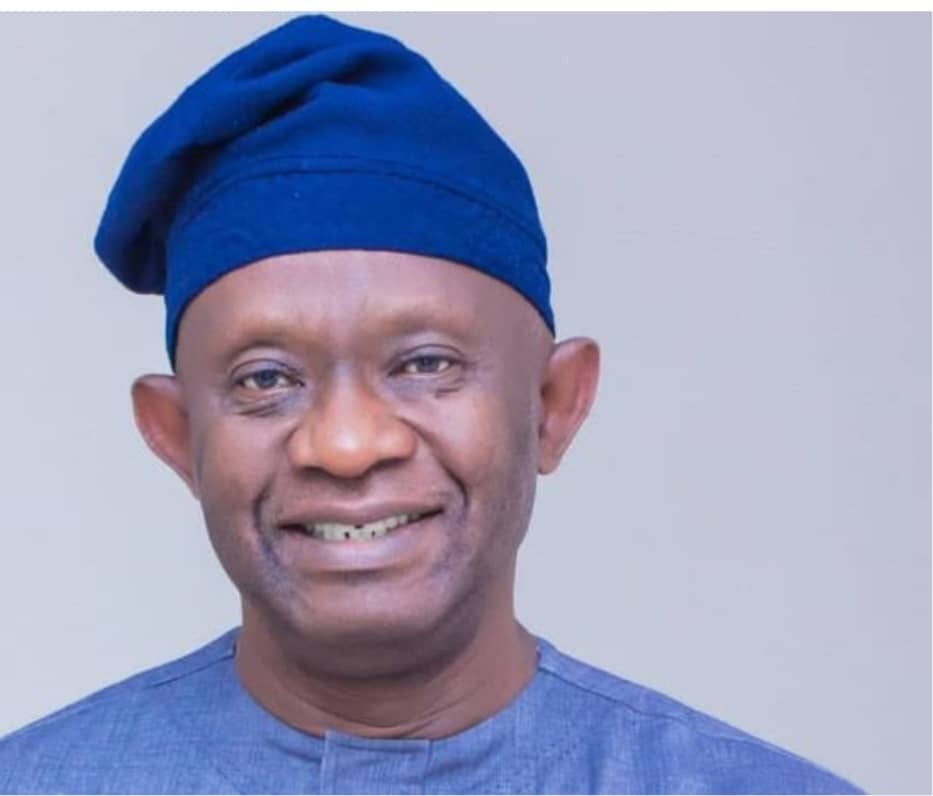
By Tunde Olusunle
Perceptive political followers must have been enthralled by the rainbow coloration of representation for the people of Kogi West on one hand, and Okunland, in the *ninth session* of the national assembly. Between 2019 and 2023, the Senator representing Kogi West at the time was Smart Adeyemi of the All Progressives Congress, (APC). The Lokoja/Kotonkarfe federal constituency had Shaba Ibrahim of the Peoples Democratic Party, (PDP); the Kabba-Bunu/Ijumu constituency represented by Tajudeen Yusuf also of the PDP, while the Yagba federal constituency had Leke Joseph Abejide of the Africa Democratic Congress, (ADC). Kogi State politics hitherto was practically “mono-political,” the PDP being the party to beat. The emergence of the All Progressives Grand Alliance, (APGA), which contested the governorship of Anambra State in 2023, accentuated popular belief that political parties beyond the big ones could contest and win popular votes. Indeed, the multi-party coalition which berthed the APC in 2015 and enabled the party clinch the presidency, reinforced the possibility that aspirants for political office could indeed realise their ambitions outside the bigger, “mainstream” parties.
The 2023 general elections threw up new dynamics in the politics of Kogi West and Okunland. Sunday Karimi who earlier had two stints as representative of the Yagba federal constituency from 2011 to 2015, and from 2015 to 2019, won the senatorial election on the platform of the APC. Abejide got rewarded by his kinsmen for representing them well in his first term and was reelected in 2023. That he remained in the ADC and triumphed even many assumed he would defect to the ruling APC reaffirmed the depth of affection his people have for him. Salman Idris, Fellow of the Nigerian Institute of Architects, (FNIA), the incumbent representative of Kabba-Bunu/Ijumu in the House of Representatives. He adopted the same ADC platform like Abejide for the actualization of his ambition. He has but since followed the APC gravy train.
Legislators, traditionally, have been known to restrict their services, to their specific constitutional catchments. A federal parliamentarian representing Lokoja/Kotonkarfe for instance, concentrates his efforts and advocacy on his specific geopolitical boundaries. TJ Yusuf in his three terms as legislator representing Kabba-Bunu/Ijumu federal constituency from 2011 to 2023, experimented with a pan-Okun approach which aimed at engaging with the five core Okun local government areas, as one bloc. He introduced a regular interactive forum where federal bureaucrats of directorial cadre, Assistant Directors, Deputy Directors and substantive Directors from Okunland converged from time to time to rub minds in the collective interest of the Okun country. Yusuf also cultivated and sustained his affiliations with the entire span of Okunland, regularly identifying with causes beyond his specific area of service.
Okunland has serially received the short end of the stick, regularly overlooked by federal and state authorities in the developmental scheme. From critical infrastructures like roads, to power supply, and more recently insecurity, Okunland has been the butt of deceit and multifaceted afflictions through successive regimes. Beyond their primary responsibilities in law-making therefore, federal congressmen have been compelled to get very involved in providing very basic needs for their constituents. This has often tasked their creativity and private resources, in a milieu of shrinking fiscal wherewithal.
Abejide endeared himself to his folks in the three Yagba local government areas, among other reasons by underwriting the bills for all students in public schools in Yagbaland desiring to write the Senior Secondary School Certificate Examination, (SSSCE), back in 2018. While prioritising his alleged humongous thievery from the common patrimony of the people for which he is standing trial, former governor of Kogi State, Yahaya Bello, wilfully asphyxiated civil servants and other workers of their remunerations and entitlements. He deliberately weaponised poverty among the citizenry and the workforce, exposing the people to tangible gloom and despair. The opacity which characterised the primaries of the bigger political parties also culminated in the hemorrhaging which produced breakouts like Abejide.
Abejide, cognisant of the place of education in the lives of his people read the situation rightly and intervened decisively. He has since expanded the scope of his magnanimity to cover all secondary schools, public and private, across the five primary Okun local government areas. Simply put, education is the major industry in Okunland, an area which has turned out world class intellectuals, professionals and technocrats, in their thousands and Abejide knows this. More contemporaneously, Abejide began a process of mass procurement of resource materials for public and private secondary and tertiary institutions in Okunland. Further to the recent public presentation of two major books by this writer, Abejide procured 150 pairs of the books for distribution to schools across Okunland. The accounting colossus, Otunba Funso Davies Owoyemi it was who pioneered such good naturedness, procuring and distributing Olusunles books across schools in Okunland.
With the decrepit road infrastructure in Okunland earlier alluded to, Abejide has regularly joined forces with like minds to ensure the motorability of roads within Okunland, especially every yuletide season. From the north of Nigeria and Abuja, Okunland is accessible through the Kabba- Ekinrin Adde- Omuo Ekiti, and the Kabba- Aiyetoro-Gbedde- Isanlu- Ejiba roads respectively. Sadly, both accesses are barely motorable at the best of times. Commuters have been known to pass some nights on these roads at the height of rainy seasons which heighten the brokenness of the roads. Abejide is also leading the charge for the development of a dedicated *Okun House* which will serve as one-stop secretariat for Okun people. As a first timer in the House of Representatives between 2019 and 2023, fate thrust the chairmanship of the House Committee on Customs and Excise, on Abejide. In the *10th Assembly* which is in session, Abejide has been retained in the same position, a placement which has enabled him to support his people in instances.
Sunday Karimi came into office as Senator representing Kogi West District, armed with requisite experience as a “ranking parliamentarian.” While he previously covered just the three local government areas in Yagbaland, his present responsibility spans seven expansive local governments, traversing three federal constituencies. That Karimi was promptly assigned to chair the Senate Committee on Services by the President of the Senate, Godswill Akpabio, is evidence that he can be trusted to deliver. He has been proactive since he was inaugurated alongside his colleagues in June 2023.
Karimi commanded attention earlier this year when he initiated and singlehandedly undertook to build a military “Foreward Operating Base,” (FOB) in Egbe, Kogi State, at the intersection of Kogi and Kwara states. Karimi had been personally traumatised by the sudden desecration of the pristine calm and quiet of Okunland, by a motley of undesirable elements. Thoughtless Fulani herdsmen; brazen armed robbers and daring kidnappers, have suddenly upset the acclaimed serenity of Okunland. Karimi’s all encompassing “mini barracks” is complete with accommodation facilities; administrative offices; an observatory; recreation installations; water supply and so on. He equally provided trucks for the mobility of the occupants. The facility was taken over last October by the Nigerian Army which has since deployed personnel. Leke Abejide attended the event to support Karimi, as evidence of the rapprochement between both legislators.
Karimi who inaugurated a N100m bursary scheme for students of tertiary institutions from Kogi West last July, has committed another N100million to the empowerment of women in Kogi West, through cooperative societies. He moved swiftly last October to personally fund the restoration of the dismembered *Pakuta* bridge connecting communities in Ijumu, Bunu district and Lokoja local government areas, at about N20m. *Setraco Construction Ltd* was originally awarded their contract to build the whole stretch of the road and related infrastructures. Inadequate funding has, however, impacted the realisation of the project. Karimi is also building a 1000 capacity multipurpose hall at the National Open University of Nigeria, (NOUN) Study Centre in Isanlu. Karimi is anchoring the holistic upgrading of the Government Secondary School, Kotonkarfe, into an ultramodern institution, in collaboration with the Federal Ministry of Education, which will cost over one billion naira. Karimi has also launched an ambitious N1.24 Billion project, to rehabilitate and build 140 solar-powered boreholes across Kogi West, across the 85 electoral wards in KogiWest. Back in September, Sokoto State Governor, Ahmad Aliyu-Sokoto, announced his administration had committed N1.2Billion on building 25 new boreholes! Karimi’s constituents must feel immensely proud about the frugal effectiveness of their representative. The first two boreholes under the “140 boreholes initiative,” have been drilled in Aherin community in Lokoja local government area.
Karimi, in addition to these laudable strides, has been financially supportive of the *Anglican Church School of Nursing Project* being developed in Iyara. The initiative is being pursued in collaboration with Scotland-based organisation. Ever conscious of the thirst of his people for educational and professional literacy, Karimi maintains close oversight on this initiative. Smart Adeyemi and Dino Melaye, Karimi’s predecessors in the Senate, broached the advocacy for the upgrade of the Federal College of Agriculture in Kabba, which is affiliated to the Ahmadu Bello University, (ABU), Zaria, into a full-fledged university, while in office. The aim is to provide additional opportunities for university education for restless questers from Kogi West and beyond. Karimi has continued on the same path, ever drawing the attention of the Senate to the imperative of this popular desire by his people.
Karimi and Abejide are amongst the most experienced parliamentarians from Kogi State in the federal congress, on current form. The hitherto discontinued meetings of the Kogi West Caucus in the national assembly, has been reactivated. This engenders interface between congressmen with the overall aim of providing better representation for the people. They have also opened up themselves to regular interactions with their constituents as may be requested for, and scheduled. Karimi and Abejide hosted representatives of the *Yagba Action Group* in their Abuja homes, within one week of each other, in August and September this year for instance. Both men are also on the same page on ensuring the rehabilitation of the Kabba-Aiyetoro-Gbedde-Mopamuro-Isanlu-Egbe road, a critical artery connecting almost all the local government areas in the zone.
Confronting the reality that governmental budgetary provisions may never scratch the surface of the road, Karimi and Abejide continue to collectively engage the Federal Ministry of Works, and the leadership of *Mangal Cement Industries* which recently became operational in *Iluhagba Gbedde,* in Ijumu area. Sections of the Kabba to Egbe road are being patched up for motorability as we speak, arising from the persistence of both gentlemen. It is the same unanimity of purpose which informs the concern of both public servants about the need for the operationalisation of *Omi Dam,* a facility in Yagba West, built decades ago, yet un-utilised. The dam can be developed for hydro- electricity and for irrigation purposes to ensure all-year farming in Kogi West. The journal towards tangibly impacting their constituencies and homelands may still be long. It seems evident, however, that Karimi and Abejide have their bootstraps firmly fastened, eyes trained on the tracks of the marathon.
*Tunde Olusunle, PhD, Fellow of the Association of Nigerian Authors, (FANA), is an Adjunct Professor of Creative Writing at the University of Abuja*
-
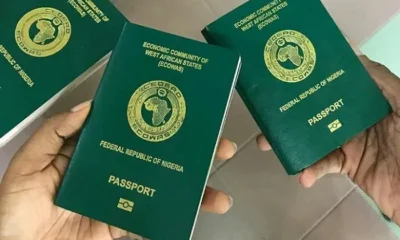
 News15 hours ago
News15 hours agoFive Asian countries Nigerians can visit without a visa
-

 Entertainment16 hours ago
Entertainment16 hours agoOld Prophecy Of Pastor About VeryDarkman Goes Viral After His Arrest
-

 News15 hours ago
News15 hours agoTompolo Launches Door-to-Door Campaign for Tinubu’s 2027 Re-Election!
-
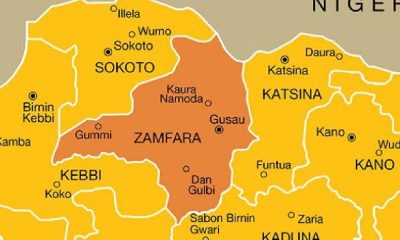
 News16 hours ago
News16 hours agoInsecurity! Bandits abduct 25 female wedding guests
-

 News15 hours ago
News15 hours agoEzekwesili slams political establishment over harassment allegation, defends Natasha
-

 News3 hours ago
News3 hours agoFormer Plateau deputy governor is dead
-

 News9 hours ago
News9 hours agoINTERPOL uncovers 150 stolen vehicles from Canada in Nigeria, Gambia, other W.A. countries
-
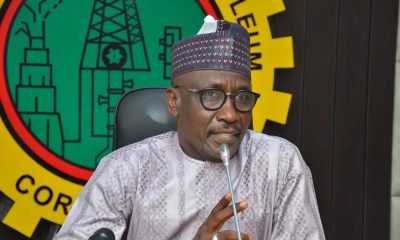
 News15 hours ago
News15 hours agoKyari breaks silence: “I’m not in EFCC custody, I served God, country, not corruption”

